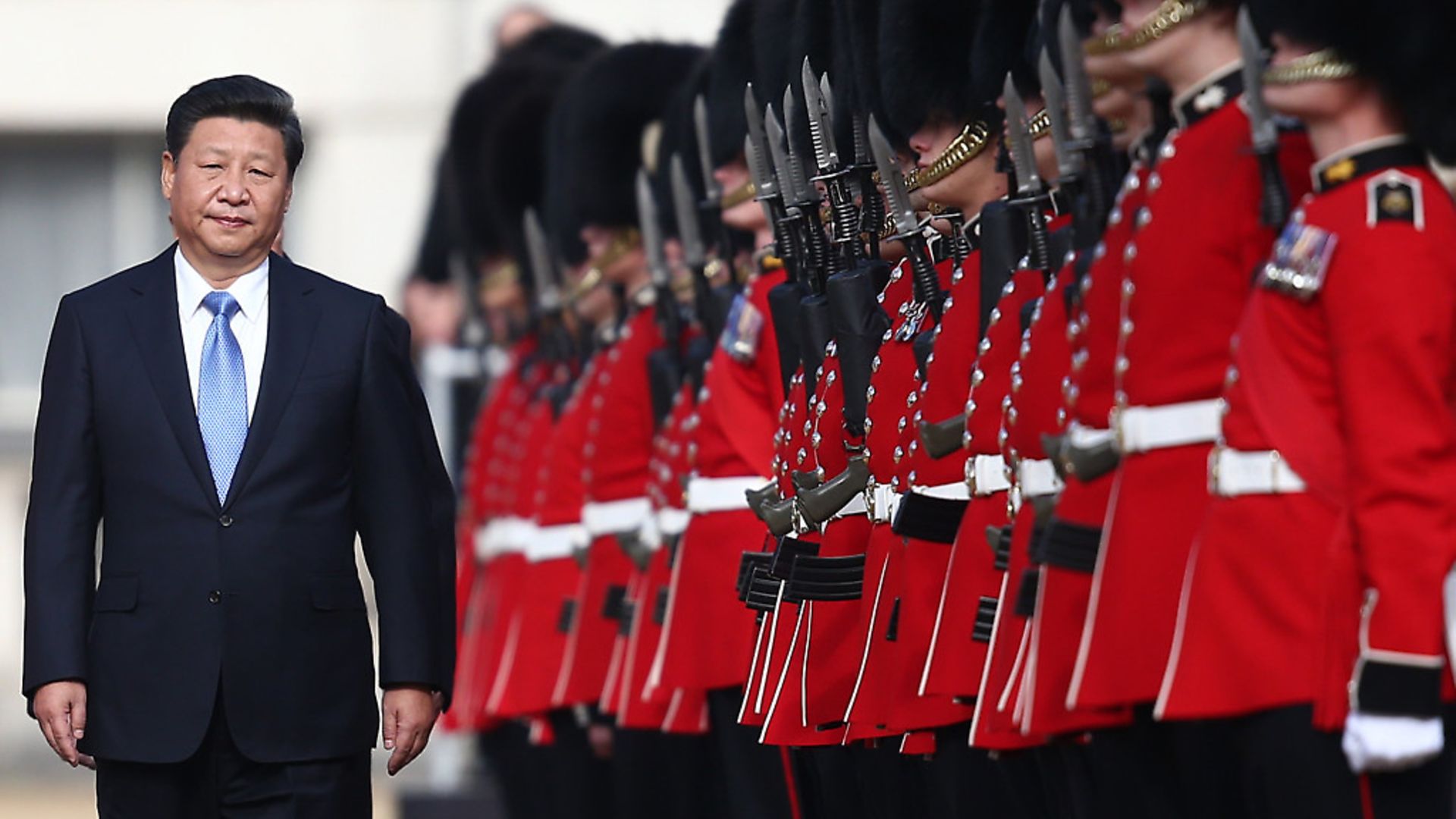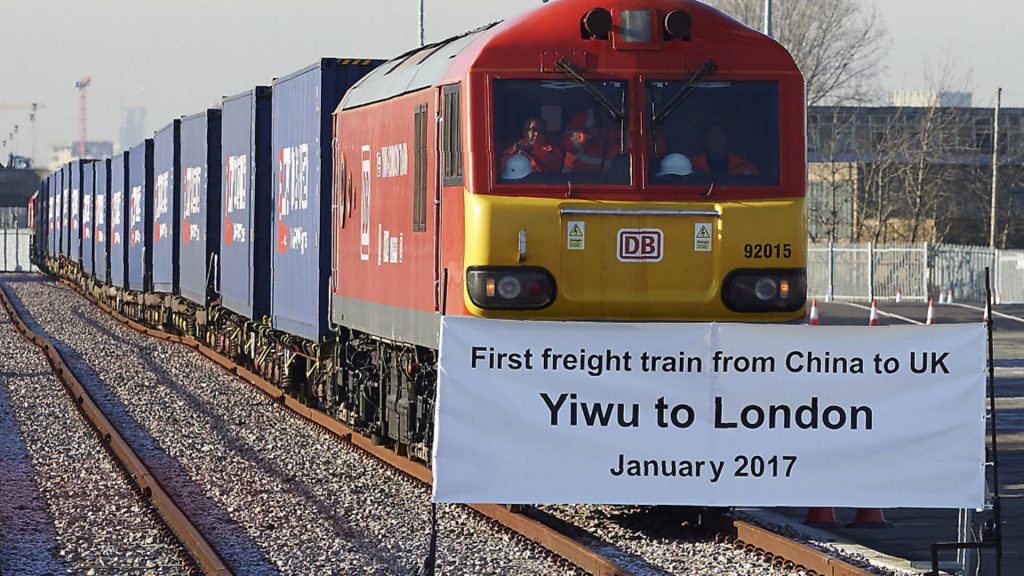
Under Trump, the US has at least formulated a strategy for dealing with Xi Jinping. The EU has yet to do so – exposing the continent to great risk. John Kampfner reports

The term kowtow has a practical definition: to act in an excessively subservient manner, or to put it more simply, to grovel. It can also be described more historically: to kneel and touch the ground with the forehead in worship or submission as part of Chinese custom.
Whichever way they interpret it, most governments around the world have been doing it for quite some time. It has been hard to resist. China is the world’s second-largest economy and is predicted to overtake the United States within a decade or two. It is investing in all the corners of the globe. It is dictating the terms of political engagement.
Britain, Europe and the US have oscillated in their approach. At times they have sought to assert universal human rights values (China would say they are purely Western); at others they have turned a blind eye.
At times they would seek to trade, on any terms, at others they have talked about environmental protection, labour rights, intellectual property and other issues underpinning economic output. They cannot make up their mind; they vary among themselves. The Chinese have been able to isolate individual countries, one by one.
Is that now changing? In Donald Trump, does the West finally have a leader who is willing to take the Chinese on, to play them at their own game? The view among many foreign policy thinkers is that Trump may be mad and bad in pretty much everything he does, but in his China policy he might be demonstrating a mettle that is long overdue.
Before casting forward and assessing the risks, a quick resume of how European governments have played China, or rather been played by China, in recent years.
As it contemplates life on its own, outside the European embrace, Britain has a huge amount of catching up to do, if trade is the determiner of the success of a bilateral relationship. The UK’s exports to China are just above Belgium’s, and well below those of Germany and France. That was why the Brits pulled out the reddest of carpets for Xi Jinping when the Chinese president visited in October 2015. It was an extraordinary, and demeaning, visit. Protesters were banned from getting anywhere remotely close. Scientists, artists, business leaders were exhorted to line up and offer up their wares.
The choreographer-in-chief of that state visit, the then-chancellor George Osborne, was unashamed about the motives. Britain, he said, needed to adopt a more mercantilist approach to its foreign policy, particularly with the world’s paymasters, the Chinese. Human rights were strictly off the table.
Only a couple of years earlier, Britain had adopted a different tone when David Cameron met the Dalai Lama. The Chinese warned against it; the prime minister of the time went ahead regardless. China retaliated, freezing top-level contacts for 15 months. Relations between the two countries had long been jittery. The Chinese were furious about the way the British negotiated the Hong Kong handover in the 1990s, seeing it as another example of post-imperial hangover.
Britain has swung from tough to meek and, seemingly, back to tough again. Chinese state investment in the UK’s nuclear energy, at Hinkley Point, was initially waved through. Theresa May then briefly reviewed it, but gave it a green light. Now our most sensitive and controversial energy source will be in the hands of a power our government apparently distrusts. The logic of that is difficult to fathom.
Underpinning China’s economic and foreign policy strategy is the multi-billion-dollar Belt and Road initiative, launched by president Xi five years ago. Known variously as a 21st century Silk Road and China’s Marshall Plan, it is a grid for investments – a ‘belt’ of overland corridors and a maritime ‘road’ of shipping lanes, taking in 71 countries, half the world’s population and a quarter of global GDP. It is scaring the life out of the West.
Much of the suspicion towards China is focused on tech, where American dominance is being challenged for the first time. In some areas, such as surveillance, it has been overtaken. Only last month, the British and Americans accused hackers linked to the Chinese government of waging a sustained cyber-campaign of theft of commercial intellectual property, obtaining unauthorised access to the computers of at least 45 entities, including commercial and defence technology companies and government agencies such as NASA.
That coincided with the arrest in Vancouver of the chief financial officer of Chinese tech giant Huawei. She was accused by the US of helping cover up violations of sanctions on Iran. China retaliated by arresting two Canadians. The problem, according to the British and others, is that China has used open markets to embed surveillance and hacking technology into its commercial products.
The British defence secretary Gavin Williamson said he had ‘very deep concerns’ about Huawei being involved in upgrading the UK’s mobile network. Why did it take them so long to go public? Concerns about Huawei from within industry are not new. Beijing countered by accusing the British of ‘deep-rooted pride and prejudice’.
A pattern is not hard to discern. Unsure of how to counter the long-term trend of increasing Chinese power, individual Western states take individual pot shots, then retreat. Then they have a go again, depending on the circumstances they find themselves in. It doesn’t add up to a strategy.
What Trump is doing is to push back more comprehensively. The latest National Security Strategy defines China as a ‘strategic competitor’ seeking to challenge ‘American power, influence, and interests, and attempting to erode American security and prosperity’.
Amid the threat of all-out trade conflict, Trump is goading the Chinese to blink first. In a typical rhetorical flourish, he has told countries that have become dependent on China for their infrastructure – notably in Africa, Latin America and parts of Asia – they have to choose whose side they are on.
And what of Europe? Two months ago, the EU published its response to growing concerns about Belt and Road. The concerns are many and varied. Major European leaders such as France’s president Macron and chancellor Merkel of Germany see Belt and Road as a wedge to undermine European cohesion.
Many of the investments directly counter EU regulations on IP, labour rights, procurement transparency and debt sustainability. During a visit to China in February, Macron said there could be no ‘one-way’ trade road leading to ‘hegemony, which would transform those that they cross into vassals’.
But is anyone listening?
China’s foreign direct investment in Europe has soared from under 1 billion euros in 2008 to 35 billion euros in 2016 – more than triple the amount of European financing flowing in the opposite direction.
Many of the projects are taking place in the more debt-laden and impoverished countries of central, eastern, and southern Europe, including the western Balkans whose infrastructure needs are often substantial and available financing options more limited.
China is pouring 1 billion euros into a railway between Budapest and Belgrade. It is helping to modernise the Greek port of Piraeus, which it aims to use as a key logistics hub into Europe. It is building a new city in the forests on the outskirts of the Belarusian capital Minsk to create a manufacturing springboard between the EU and Russia.
The new far-left and far-right government in Italy is going cap in hand to China. In return countries such as these are being urged to try to scupper EU and international initiatives on human rights and other issues that might irk the Chinese. In June 2017, Greece blocked a statement at the UN Human Rights Council criticising its human rights record, the first time the EU had failed to make a joint statement. Three months earlier, Hungary refused to sign a joint letter denouncing the reported torture of detained lawyers in China, breaking EU consensus.
So where does all this leave European trade and foreign policy towards China? In short, in a mess. The EU is not sure how far to see it as a strategic adversary, and how much to accept that its economic might requires a shift in approach, and values, whether purists like it or not. They cannot decide.
For more than two decades, the dial has shifted towards Beijing. The speed of the paradigm shift has, and will continue to be, determined largely by relative economic performance. It has not all been plain sailing for China. In the year just ended, 2018, China’s was the worst performing of all the world’s disappointing stock markets. The last quarter’s economic growth, annualised at 6.5%, was the lowest in a decade.
Yet these stats will, in the long term, be seen as micro detail. China’s unapologetically different worldview and uncompromising search for influence will only increase. The Americans have decided on a more openly confrontational approach. The EU has yet to alight on a convincing and cohesive position. Finding one is by far the biggest challenge it faces in 2019 and beyond.










